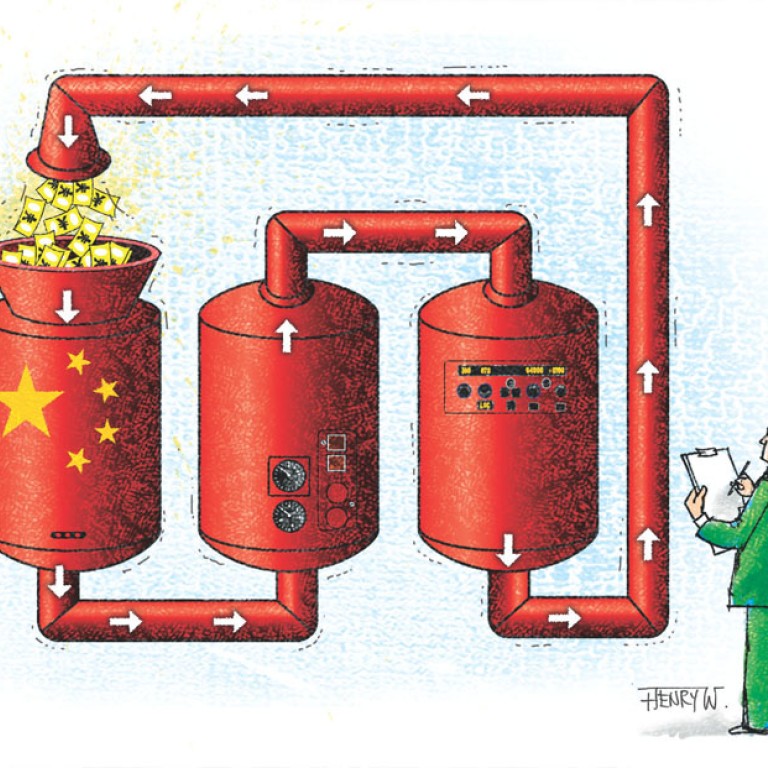
Was GlaxoSmithKline doing just too well in China?
Kerry Brown suggests that the GlaxoSmithKline scandal must be understood in the context of a ruling regime that has become adept at making money and ensuring profits stay at home
The admission last week by GlaxoSmithKline, after claims of misconduct by Chinese authorities, that staff of the massive pharmaceutical company "appear to have acted outside of our processes" seems like a hasty climbdown. But it raises a deeper question, and one that companies such as GSK which are doing well and are in important sectors in China will almost certainly have to face more in the future.
There are plenty of risks which lead to a foreign multinational doing poorly in a complex business terrain like China's. But there are also pretty grave risks that come from doing too well. GSK's recent plight falls into the latter.
Having a key sector like this dominated by foreign players is not in the long-term game plan
Demand for good-quality pharmaceuticals can only increase in the coming years as society in China ages, people become more demanding about their health care, and the health systems grows. GSK has worked in the local market in one form or another for over 20 years. Its profits are good, and are likely to get better. This is something that the authorities must be irritated by. Having a key sector like this dominated by foreign players is not in the long-term game plan. But the simple reality at the moment is that no Chinese company can do what GSK currently does.
One of the greatest paradoxes of the modern world is that the last major communist party reigning on the planet is also the entity with the strongest sense of the importance of profit. This gives the party an unsettling similarity to organisations that superficially look utterly different to it.
A couple of years ago I visited Facebook's headquarters in California. The company exuded a powerful air of self-satisfaction. A senior executive bragged that whatever the public criticisms of its use of private information, and its mode of business execution, there was one thing that silenced all this - it had close to a billion users. Sitting on an asset like that, the world could carry on complaining.
There was one moment during that meeting, however, when a slight note of self-doubt crept in. On the wall was a map showing Facebook's penetration across the planet. Every continent and territory had bright little dots showing where users were. It seemed they reached even into the most remote and sparsely populated parts of the globe. But smack bang in the middle of this map was a huge dark hole - the People's Republic of China. There were no little dots representing faithful Facebook users there since it was blocked by the Great Firewall.
We might think that Facebook is locked out of the Chinese market because of censorship issues and the way in which social media were linked to protest movements during the Arab spring from 2010. But that is only half the story.
In fact, Facebook would have been looking at vast potential profits had it been able to get going in China - a terrain where it would have had access to more than a billion new users. For the party, the issue must have been simple. Why open your domestic market to a company that carried not only a security threat, in your eyes, but also a chance of stealing your profits? A Chinese equivalent of Facebook was set up. The profits stayed at home.
People often glibly explain that the Communist Party is focused only on power, as though this were some uniform product that took one form and manifested itself in one way. In fact, a better description might be that the party is now focused on profit.
State-owned enterprises have become a baffling combination of inefficient but profitable over the last decade. Their profits are enough to allow some of the elite to accrue fortunes that, were they more public, would put them on global rich lists. Profit lies like an ocean throughout China, and the party has constructed an immense patronage and control system to make sure that these profits flow in ways which support it.
Marx described a history of dialectic development leading towards a utopia in the future where contradictions would iron themselves out and the capitalist state wither away. But he could never have envisaged over a century after his death a party inspired by his ideology operating a more ruthlessly successful profit formation system than any devised by the Western capitalism he had forensically criticised.
The party has presided over the accumulation of US$3.5 trillion of foreign exchange reserves and an economy that has quadrupled in size since 2001 alone. Facebook, GSK and others could only look at the ways in which state-owned enterprises in China drive for profit with a single-minded sense of purpose that seems to banish everything else from their pathway.
It is deeply ironic that the party is besting Western corporates at their own game. This may well prove to be unsustainable. But what it shows is that the finest multinationals in the 21st century can only look at the money-making skills of the Communist Party of China with envy. And for those with any chance in the market, the age-old adage proves itself daily: if you cannot beat them, join them. Which seems to be precisely what GSK has done.

